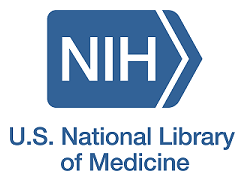

To Your Health: NLM update Transcript
Healthy international travel recommendations: 08/08/2016

Image: Courtesy of the Centers for Disease Control
Greetings from the National Library of Medicine and MedlinePlus.gov
Regards to all our listeners!
I'm Rob Logan, Ph.D., senior staff, U.S. National Library of Medicine (NLM).
Here is what's new this week in To Your Health - a consumer health oriented podcast from NLM - that helps you use MedlinePlus to follow up on weekly topics.
Some specific recommendations on healthy international travel as well as information to take to your physician prior to a voyage are provided in a timely review article recently published in the New England Journal of Medicine.
The article's three authors recommend international travelers receive vaccines for Hepatitis A and B. The authors explain the Hepatitis A vaccine helps prevent the disease's transmission within food. The Hepatitis B vaccine helps prevent the disease's transmission from blood and body fluids.
Among more than 100 tips to reduce disease risk during international travel, the authors suggest seven are:
- Perform a full body check at least once a day in areas where tick diseases are a risk
- Never assume an animal is free of rabies
- Sit on a towel, or blanket, or piece of clothing instead of directly on sand. The authors explain sand can become contaminated in areas frequented by animals
- Avoid buffets where food covers or fly controls are not used
- Avoid higher-risk foods, such as shellfish, raw or undercooked foods, unpasteurized dairy products, mayonnaise, and fruits you have not peeled yourself.
- Carry all medicine in labeled prescription bottles
- Carry a list of medical conditions, allergies, and medications with dosages.
Before departing, the authors (who are infectious disease experts) encourage you to see your primary care physician and be prepared to answer questions about your:
- Prior travel experiences
- Itinerary
- Activities — if the trip includes adventure travel, and events with mass gatherings
- The type of accommodations where you plan to stay
- The degree you are willing or unwilling to take travel-related health risks
- A list of medications, recent immunizations, changes in allergies, pregnancy, breast-feeding, or anything new in your medical condition.
The authors also encourage us to seek advice from an infectious disease specialist if a trip contains high risk or adventure travel, if you have a compromised immune system, a chronic disease, are pregnant/or plan to be, have an especially complex itinerary, or plan to live abroad for a long time.
Interestingly, the authors report the number of arrivals in emerging nations surpassed developed nations for the first time in 2014. The authors report there were 1.2 billion tourist arrivals in all nations in 2015.
The authors explain from 20 to 80 percent of travelers do not seek health consultation, which they believe may be one of the reasons that 22 to 64 percent of travelers report resulting illnesses.
The authors' counsel is especially timely given recent public concern about the unexpected transmission of the Zika virus.
Some additional information about travel health risks - from the American Academy of Family Physicians - is available within the 'start here' section of MedlinePlus.gov's traveler's health health topic page.
The Nemours Foundation also provides a primer written for parents with traveling children within the 'start here' section of MedlinePlus.gov's traveler's health health topic page.
MedlinePlus.gov's traveler's health health topic page additionally provides links to the latest pertinent journal research articles, which are available in the 'journal articles' section. Links to relevant clinical trials that may be occurring in your area are available within the 'clinical trials' section. You can sign up to receive updates about traveler's health as they become available on MedlinePlus.gov.
To find MedlinePlus.gov's traveler's health health topic page, please type 'traveler's health' in the search box on MedlinePlus.gov's home page, then, click on 'traveler's health (National Library of Medicine).' MedlinePlus.gov also has health topic pages devoted to immunizations as well as theZika virus.
Before I go, this reminder... MedlinePlus.gov is authoritative. It's free. We do not accept advertising .... and it is written to help you.
To find MedlinePlus.gov, just type 'MedlinePlus.gov' in any web browser, such as Firefox, Safari, Chrome, or Explorer, on any platform.
We encourage you to use MedlinePlus and please recommend it to your friends. MedlinePlus is available in English and Spanish. Some medical information is available in 48 other languages.
Your comments about this or any of our podcasts are always welcome.
Please email the podcast staff anytime at: NLMDirector@nlm.nih.gov
A written transcript of recent podcasts is available by typing 'To your health' in the search box on MedlinePlus.gov's home page.
The National Library of Medicine is one of 27 institutes and centers within the National Institutes of Health. The National Institutes of Health is part of the U.S. Department of Health and Human Services.
A disclaimer — the information presented in this program should not replace the medical advice of your physician. You should not use this information to diagnose or treat any disease without first consulting with your physician or other health care provider.
It was nice to be with you. Please join us here next week and here's to safe travels and your health!


































No hay comentarios:
Publicar un comentario